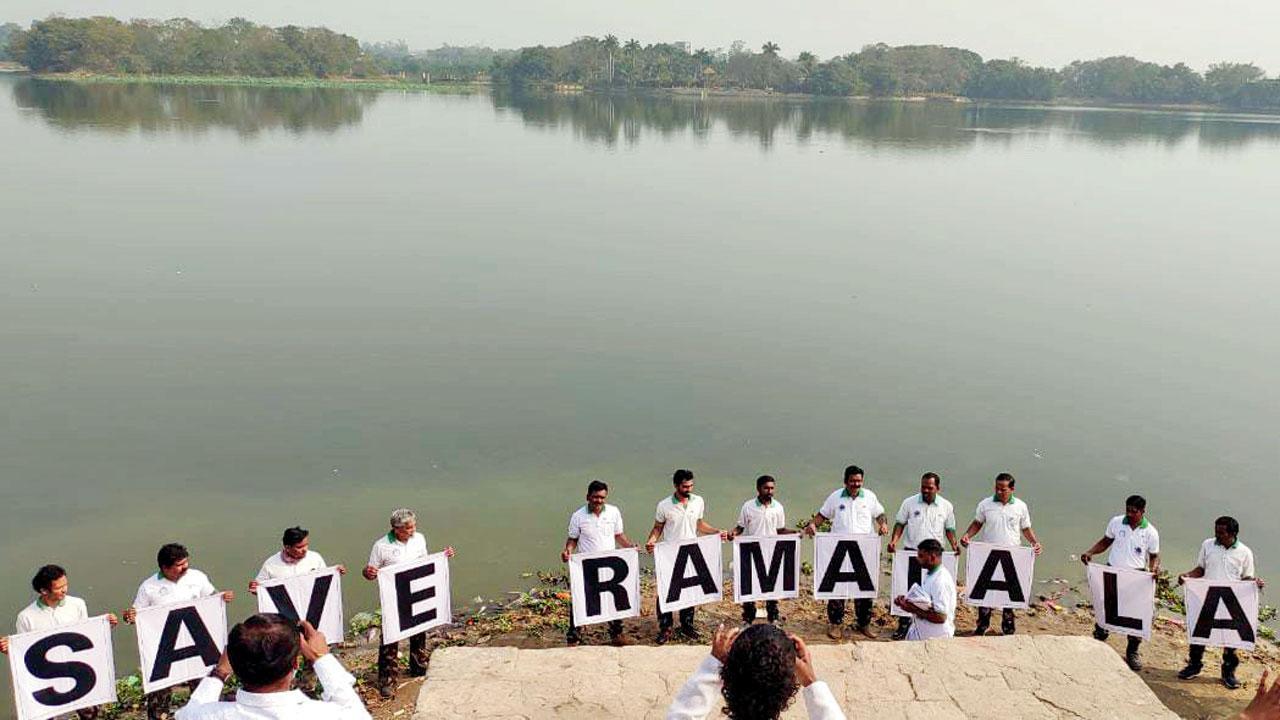After his efforts to get authorities to clean up the last remaining lake in Chandrapur failed, an environmental activist is now pinning his hopes on an indefinite hunger strike

The lake was built by the Gond kings more than 500 years ago
Our phone call to Bandu Dhotre, founder of environmental NGO Eco Pro, is answered within two rings, but the voice at the other end sounds like it could do with some rest. Turns out, Dhotre is, in fact, on a hospital bed. It’s day 10 of his hunger strike to save Ramala, the last remaining lake in Chandrapur in eastern Maharashtra, and his condition has been progressively deteriorating. “But, I’m better now. I should be discharged soon.”
ADVERTISEMENT
Bandu Dhotre (centre) on a hunger strike with fellow members of Eco Pro
The 41-year-old has been dredging up every ounce of strength to ensure the protest he’s leading doesn’t lose steam. Since 2009, the activist is fighting for the cause of the lake built by the Gond kings more than 500 years ago to supply water to the walled city of Chandrapur. His efforts to persuade the administration to save the lake over the years have had little or no effect, compelling him to sit on a hunger strike. “The city’s sewage, along with urea and sulphate, is drained into the lake during the rainy season from the adjoining railway line. The Macchi nullah is the main source for this. All of this is polluting the lake. Unlike in rivers, once hazardous particles enter a lake, they tend to get absorbed and also incorporated into the sediments, where they may be permanently buried.”
Earlier this year, thousands of fish were found dead on the lake’s bank. The incident, he says, is testament to how pollution is posing a threat to aquatic life and people living in areas nearby. His relentless activism has managed to galvanise many socially conscious individuals, who have joined him in the protest. “Sadly, the lake has never been a priority for the government. Every year, the work is postponed due to want of funds.”
Dhotre, also a member of the State Wildlife Board, recently communicated with State Tourism Minister Aditya Thackeray, who has now directed the district administration to provide the estimate for cleaning and beautification. “The priority at this point is to acquire grants to clean up and deepen the lake. Beautification and boosting tourism can happen after that.” His concern is legitimate.
Dead fish on the banks of Ramala lake
Over the years, lakes such as Kangara, Tukum, Ghutwala, Gauri and Lal, have dried up due to similar reasons. The 97-acre Ramala lake is the last remaining lake of Chandrapur. His NGO is in talks with the Archaeological Survey of India (ASI) to clean up the shrubs and vegetation in the surrounding lake area.
Dhotre is not new to hunger strikes. In 2009, he had started a fast-unto-death demanding that the coal mining project near the Tadoba Andhari Tiger Reserve in Maharashtra be shelved. His strike, ended after 14 days, when the widespread support that it garnered propelled the then Union environment minister Jairam Ramesh to issue a public assurance that no coal mining project would be cleared without considering its effect on wildlife and environment. He hopes the present strike will also yield results. “I’m not calling this off until our demands are met.”
 Subscribe today by clicking the link and stay updated with the latest news!" Click here!
Subscribe today by clicking the link and stay updated with the latest news!" Click here!






